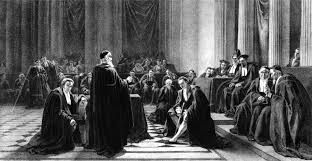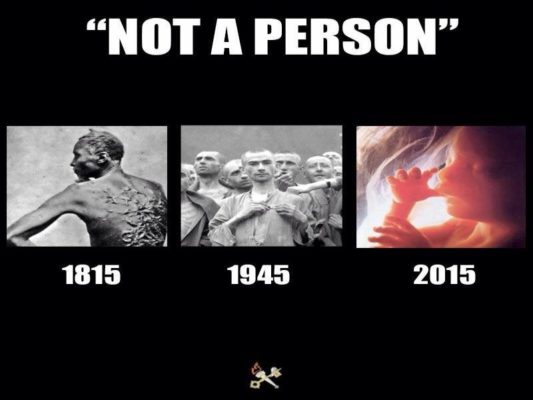Was Jesus involved in politics?
Should Christians be involved in politics?
What divisive questions! What do we mean by “being involved in politics?” To answer these questions, we have to understand the context of 1st century Israel. But even before that, let’s examine some things:
1…is Jesus the Lord of your whole life or just part of it? Jesus should be Lord of all of my decisions and all of my life (Acts 10:36 & Luke 6:46). And politics, who I’m going to vote for and what laws I want my representative to vote for is a part of my life. So yes, Jesus is Lord of my life, including my political life.
2…do my political views line up with the revealed Word of God, the bible? What am I basing my political views on? My own will (Judges 21:25) or God’s will (Deuteronomy 6:17, 18)?
3…If Jesus didn’t speak directly on a subject, does this mean it’s OK to do it or believe in it?
A prime example of #3 is the issue of homosexuality. Some people say because Jesus didn’t directly speak to it, it must not be that important. But Jesus didn’t speak about childhood sexual abuse either and nobody in their right mind would say that’s not important. Jesus spoke on many things that aren’t in the gospels (John 21:25). The apostles had an agenda in mind when they wrote their gospels and apparently, some things that Jesus talked about just didn’t fit their agenda. But the prohibition on homosexuality is in the bible in Romans 1:18-32 & 1st Corinthians 6:9. Are these people saying that the bulk of the New Testament isn’t inspired?
Hey, the Romans conquered, killed and massacred people and Jesus didn’t talk about that. Certainly, it doesn’t mean that massacring people is OK. We’ll come back to this example later on.
The historical context of 1st century Israel;
Was Jesus a Roman citizen? Of course He wasn’t! Then what good would it do for Him to comment on a political system that He wasn’t a part of? Jesus was Jewish, so we should look to see if He criticized that system.
Didn’t the Romans rule over Israel? Yes, Rome conquered Israel but they left the running of it to the Jewish leaders. Rome collected taxes and wanted a peaceful populace. The only rules they had were to add Caesar to the local pantheon of gods, not preach revolt against Rome and they had to OK any death sentence. Outside of these three things, they let the Jewish leaders run the country politically.
Then who were these Jewish political leaders? In Israel, the political & religious leaders were one and the same. The ruling Jewish council was the Sanhedrin. And who made up the Sanhedrin? The Pharisees, the Sadduces and the scribes.
What did the Sanhedrin do? They determined the legislative, executive, judicial, civil, criminal and yes, the religious laws. Did Jesus interact with these people? You bet He did, on many occasions.
Jesus was a Jew and a citizen of Israel. As a citizen, Jesus interacted with His political leaders. Many, many times. Yes, the kingdom Jesus talked about was not part of this world (John 18:36). But that doesn’t mean that He didn’t interact with the kingdom of this world. Some of the political leaders (the Pharisees) liked Jesus. Nicodemus and Joseph of Arimathea were secret followers of His. However, Jesus did speak out politically against these political leaders in Matthew 23:1-12 when He said to obey them but don’t do what they do because they don’t practice what they preach. So, yes, Jesus was very involved in politics.
One objection is that Jesus only addressed the Sanhedrin leaders on religious issues and not political ones. Let’s ignore for now the fact that all politics is religious at its base. Jesus’ main concern was for the salvation of our souls but it was not His only concern. He was deeply concerned about oppression and social justice.
- Taxes, Jesus didn’t say, “I don’t have an opinion on taxes. It’s not religiously relevant, so I won’t answer that?” He answered it by saying we all have a civic duty to do, so do it ( Matthew 22:21).
- Laws, Jesus condemned the Pharisees for not applying the Levitical laws with mercy and compassion (Matthew 23:23-28). The Levitical laws were religious and civil laws. You could be punished for not obeying them. The Sanhedrin not only legislated them but they made laws around these laws. You could not only not work on the Sabbath, you could only take so many steps on the Sabbath. So while there were about 600 Levitical laws, they legislated even more laws.
- Did Jesus speak out against these political leaders? Are you serious? He even called them names. In Luke 13:31, Jesus calls Herod a “fox”, not because he was sly. In the Middle East, a fox was considered a varmint. They lived in the ground, raided and killed your chickens. When Jesus referred to Herod as a fox, He was saying Herod raided and stole what wasn’t his. But Jesus went even further. He called some of the Sanhedrin putrid, rotting, white-washed coffins and slimy snakes in Matthew 23:27. This romantic notion of Jesus as a gentle, non-confrontational, speaks only peace and love person is both unbiblical and inaccurate.
- Jesus never said we shouldn’t be involved in politics. In fact, when Nicodemis and Joseph of Arimathea were friends of Jesus, He never once told them to leave politics and preach only the gospel or the law of Moses.
- Some say that Jesus and the apostles never ran for political office. Of course they didn’t because Israel wasn’t a democracy or a republic. You were appointed to a political/religious office by buying it or getting in good with people already in office.
Another objection was that this wasn’t Jesus’ mission. But He never married, never went to college, started a hospital or freed the slaves. Just because Jesus wasn’t called to do those things doesn’t mean that you and I aren’t.
- Didn’t Jesus separate politics from the things of God when He said Matthew 22:17-21 about paying taxes to Caesar? These verses don’t say don’t get into politics. It says the exact opposite, that you should.
- Some people say that God is on our side or that God is a republican. President Lincoln said that he didn’t worry if God was on our side but he did worry if we weren’t on God’s side. To be honest, today’s democratic party has special party platforms that are anti-biblical. Support for abortion and same sex marriage are the two biggest moral disagreements today. This isn’t saying that the republicans are all good. While their
party platform is more biblical than the democrats, God is NOT a republican or a democrat.
He is God Almighty. We should be sure we’re on God’s side.
Examples of Christians in politics;
- William Wilberforce, a British statesman who worked form 47 years to outlaw slavery in the British Empire. When it was finally made illegal, he passed away 3 months later. He attributed his stance against slavery to his Christianity…https://www.bbc.co.uk/religion/religions/Christianity/people/williamwilberforce_1.shtml. When Wilberforce wondered if he should stay in politics after becoming a Christian, he sought wisdom from Pastor John Newton, the slave trader who renounced slavery after becoming a Christian. Newton also wrote the beloved hymn, “Amazing Grace”. Newton gave him this advice, “God has raised you up for the good of the church and the good of the nation, maintain your friendship with Pitt, continue in Parliament, who knows that but for such a time as this God has brought you into public life and has a purpose for you.” This parallels the advice that Mordecai gave to Esther in Esther 4:14 when he said “And who knows that you have come to your royal position for such a time as this.”
Dietrich Bonhoeffer, a German theologian who opposed Hitler and the Nazi’s because of his Christianity… https://www.christianitytoday.com/history/people/martyrs/dietrich-bonhoeffer.html.
Do you think that Wilberforce and Bonhoeffer did what they did because of secular reasons? Even though they attributed their actions to a calling from God? God issues believers a stern warning in Ezekiel 33:6 which says, “But if the watchman sees the sword coming and does not blow the trumpet to warn the people and the sword comes and takes someone’s life, that person’s life will be taken because of their sin, but I will hold the watchman accountable for their blood.”
We’re not saying you have to run for political office, though God has called some people to do that. But we have the freedom and obligation to vote for Godly/Biblical positions. To not do so, is ungodly and aiding the enemy (Matthew 12:30).
Jesus was involved in politics. Why aren’t you?
References:
Books;
“Jesus is involved in politics” by Neil Mammen…this is an excellent book and should be in every Christian’s home.
“Politics according to the Bible” by Wayne Grudem. This is a comprehensive resource for understanding modern political issues in light of scripture. It tackles specific issues like abortion, marriage, economics, environment, national defense, etc.
For His Kingdom,
Dave Maynard
https://bsssb-llc.com










